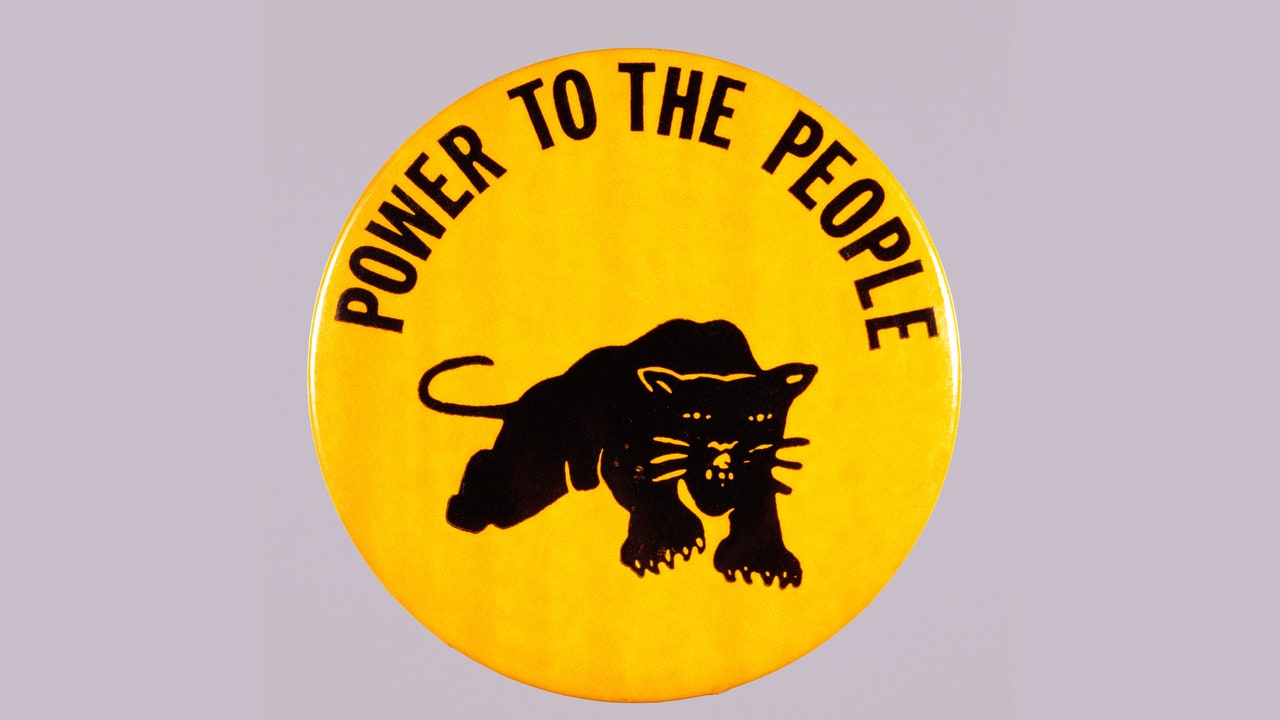Every time you have a hugely inappropriate and harmful stress response and don’t die, you train your limbic system that an overblown stress response is the right thing. Because the only thing your limbic system cares about is not dying.
Tag: self-care
2021-01-17 06:42
2019-11-17 05:18
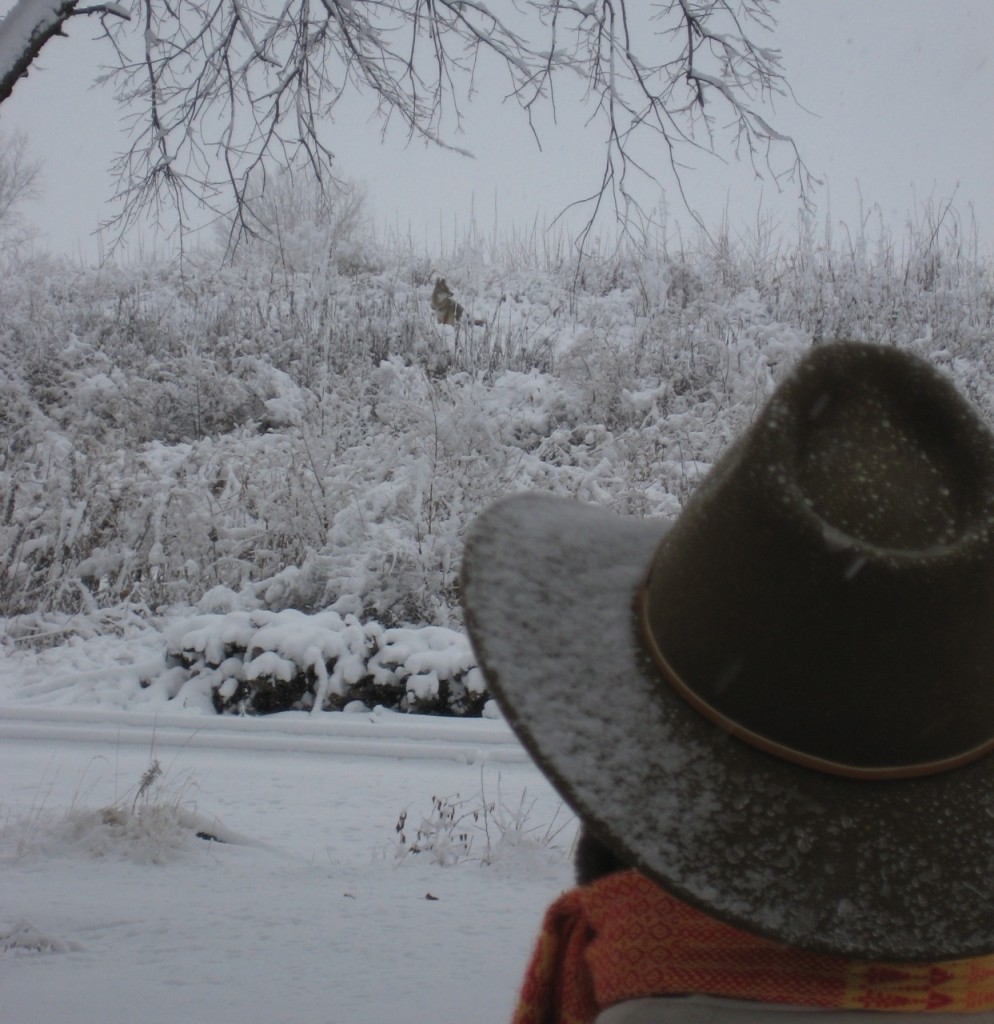 I’ve been slow to come to this realization. I rejected it in 2015, terrified that just accepting my winter depression would lead to a dangerous downward spiral. In 2016 I decided that I should experiment with acceptance. I still find it terrifying, but I am more and more convinced it’s the right thing to do.
I’ve been slow to come to this realization. I rejected it in 2015, terrified that just accepting my winter depression would lead to a dangerous downward spiral. In 2016 I decided that I should experiment with acceptance. I still find it terrifying, but I am more and more convinced it’s the right thing to do.
I told myself that I just wasn’t going to feel like I felt in the summer and that’s ok — winter is a time for different feelings. —The Secret to Enjoying a Long Winter via @randalleclayton
Oura-ringing out the old year
For a couple of years now, I’ve been having some trouble sleeping. It’s not a constant problem, but it has become more frequent than the rare thing it used to be.
I think the problem is just a string of one-off instances of stress. During this period I had one older relative begin having cognitive difficulties and have to move to a facility that could provide additional care, my cat got sick and eventually died, had some personality clashes related to volunteer work I’m doing grow into a problem that eventually involved lawyers, and had another older relative began showing signs of cognitive difficulties.
Each of these resulted in a pattern where I’d fall asleep just fine, but then wake up in the middle of the night and start ruminating about the issue of the day and be unable to fall back to sleep for an hour or three.
In the past when I had problems of this sort they tended to be short-lived. I’d stress out about something for a night or two or three, but the issue would be resolved soon enough and I go back to sleeping fine.
Here the issues have stacked up, new ones following the old ones. Further, some of them don’t go away. They linger on.
As I say, I think that’s what’s happening here. Ordinary life stresses have simply come at me a little too hard and a little too fast, with the result that my sleep has been impacted.
However, maybe that’s not all that’s going on. Maybe there’s more to it. I know there are some other issues. For example, if I don’t keep my carb intake down my nasal congestion returns, and that dramatically interferes with my sleep.
Given that I’m not sure what all might be wrong, I thought it might make sense to investigate further—gather some data, and see if I couldn’t find some patterns in my sleep problems. To that end, I bought an Oura ring, a tracking device along the lines of an Apple watch or a Fitbit, but with its focus specifically on gathering and analyzing data about sleep.
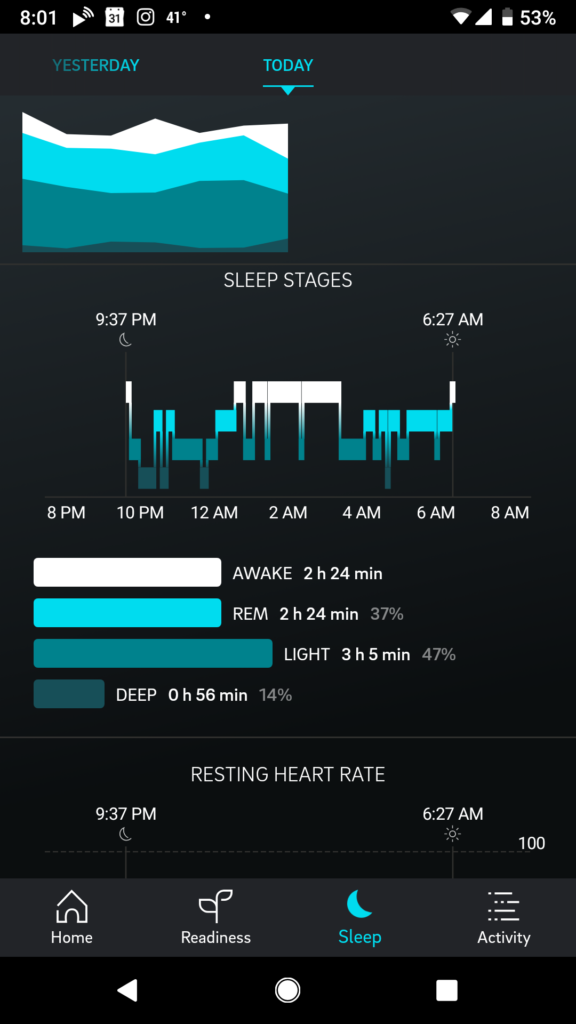
I’ve only had it for a week so far, and I’m really just getting started at looking for trends in the data. For example, three nights ago I slept poorly (awake for almost 2.5 hours of the almost 9 hours I was in bed).
One possible reason was a too-large meal too late in the day. (It was the Winfield Village holiday party.) One piece of data that suggests that possibility is that my body temperature was elevated by 0.3℃ during the night—perhaps because of increased metabolic activity digesting all that food.
Interestingly, I got more deep sleep than I had all week up to now, perhaps because I went for a long run the day before. (Deep sleep is where you get the physical recovery from things like heavy weight-lifting sessions and long runs. Maybe the first few nights had less deep sleep simply because I didn’t need more than that, because I hadn’t had the hard workouts that require deep sleep for recovery.)
Here’s the next night, where I spent less time awake and almost as much time in deep sleep:
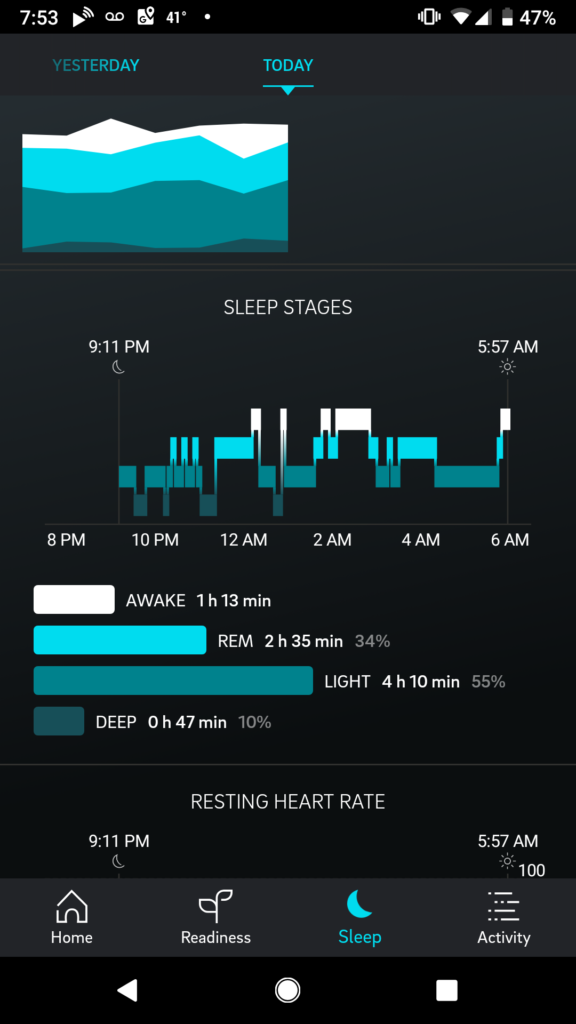
My body temperature was still up, though, even without the big meal. We had turned the thermostat down one more degree, but that’s about as low as we want it, so last night I rearranged the covers, removing the down comforter, going with just the wool blanket. I don’t know if that was a key change, but I slept very well last night:
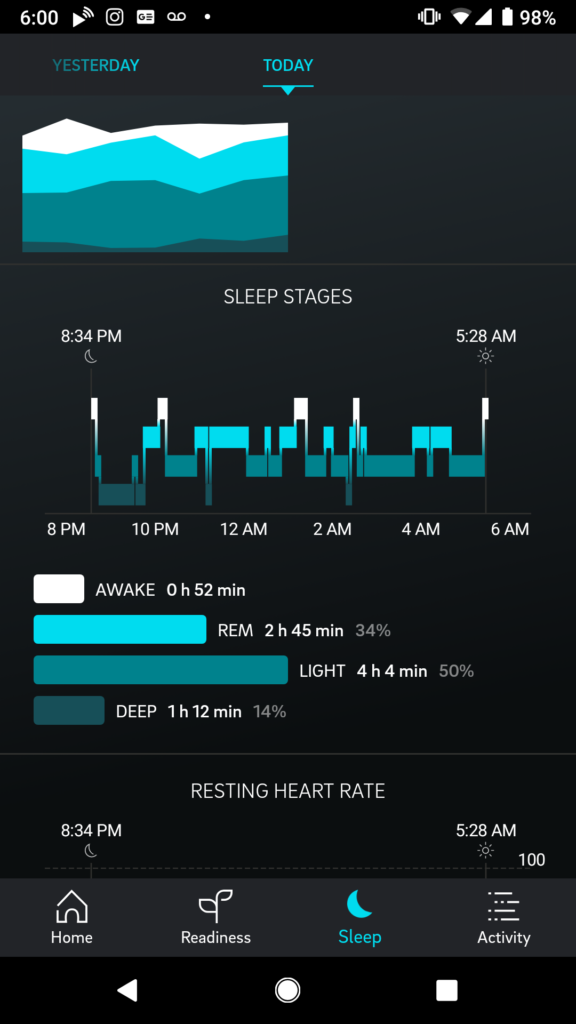
Not only were my quantities of total sleep and deep sleep good, some of the other metrics were good as well. My temperature deviation was -0.3℃, which suggests that maybe I’ve got the covers and thermostat thing balanced just about right. My resting heart rate was down to 47, which suggests that I’ve recovered completely from the long run I took three days ago.
My hope is that by paying attention to this sort of thing, I can gradually eliminate these sorts of problems affecting my sleep. Of course that will leave me with the stress-related problems, but I think I know how to handle those—fixing the ones that can be fixed, accepting the ones that can’t be fixed, and engaging in appropriate self-care to help myself handle the stress better. And, of course, get enough sleep.
Making things better with oil
There’s something—maybe just something cultural, maybe something embedded in the human genome—but something about the cold dark days of winter prompts me to want to preserve and protect things.
I have a wooden spoon that I use to stir up Bubbles, our sourdough starter. (Folk wisdom is to avoid using metal tools with a sourdough starter.) I’ve used this spoon for many years now, and after all those years the wood was getting a bit furred.
So last week I got out some sandpaper, sanded down the rough bits, and then treated the wood with oil. I did the same thing with the wooden cutting board we use for the bread loaves.
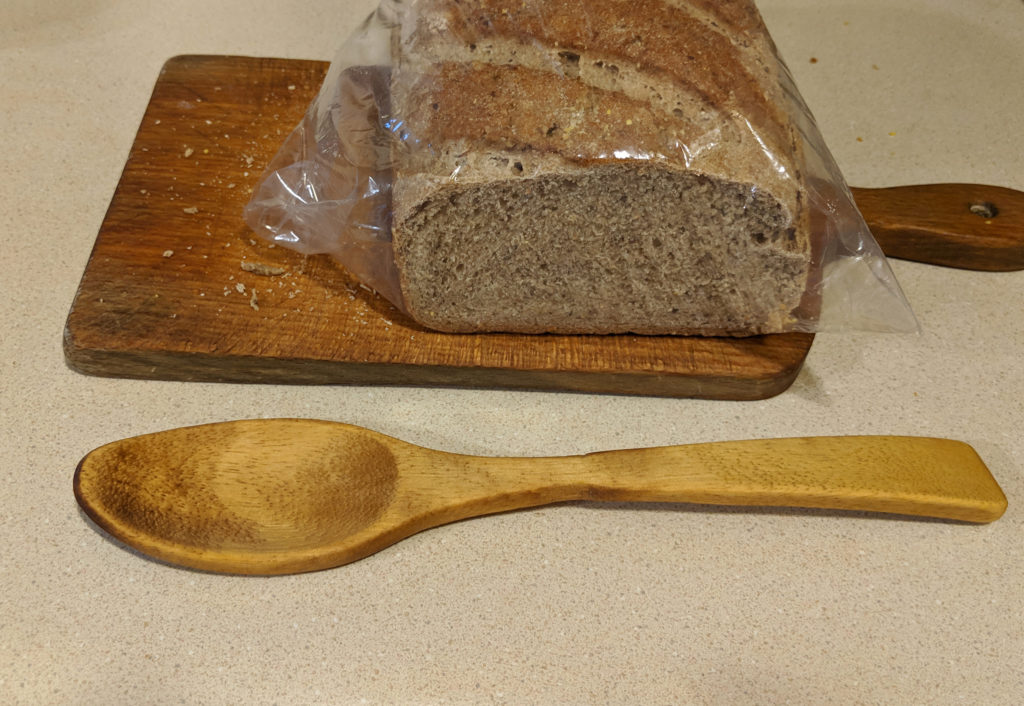
With this task in mind, I got some flaxseed oil at the grocery store, with an eye toward it being a pretty finishing oil, as well as being food-safe.
I also have a leather jacket that I got more than 25 years ago when I was learning to ride a motorcycle, and that was similarly showing its age, and also needed a nice rubbing down with oil.

For the leather jacket I used neatsfoot oil. (It’s worth following that link. Neatsfoot oil is interesting stuff.) As long as I had the neatsfoot oil out, I went ahead and oiled a pair of leather boots too.
In all these cases I’m pleased with the results—I protected and preserved something, while also making it more beautiful. But more pleasing than the results, I think, was the process. Rubbing something with oil is a simple process, but one that rewards mindfulness in a way that makes it inherently meditative.
It makes caring for your stuff into a form of self-care, in the dark days of winter.

